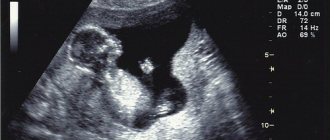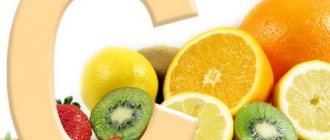Traditional corn, when placed on a hot frying pan, begins to explode. The grain opens and turns into popcorn. This simple product is becoming a must-have for movie screenings and various parties. Debates about the benefits and harms of popcorn are ongoing. Therefore, it is worth understanding this issue in detail.
Popcorn can be natural or with additives. Sugar and salt, caramel, butter, cheese and various flavorings improve the taste of the product. Any additives increase the harmful effects of the product on the body and can cause the development of gastritis and the formation of stomach ulcers.
Types of popcorn
The benefits and harms of popcorn directly depend on the production method, the aromatic additives in it and flavor enhancers. The assortment of popcorn allows you to choose a delicacy for literally every taste.
Main types of popcorn:
- Without additives. You don't often see it in stores and recreational areas.
- Salty. This type has less calories than sweet ones, but is able to retain water. As the name implies, the product contains salt; excess of it provokes thirst and the appearance of edema.
- With flavoring additives. Synthetic additives can imitate the taste of different foods (paprika, onions, cheese or bacon). With frequent use, gastrointestinal diseases are possible.
- Caramelized. This type of delicacy is processed with various fruit and chocolate syrups and caramel. The product is high in calories and puts a strain on the pancreas. It should not be used by diabetics, overweight people or people with pancreatitis.
The most dangerous thing about industrially produced popcorn is the low-quality vegetable oil used in cooking. Oxidation products and carcinogens can worsen the health of a child or a weakened adult. Therefore, whether popcorn is healthy or harmful depends on the additives.
What's that smell?
The smell of microwave popcorn is distinctive, but you can catch it in other strange places. The Binturong, a Southeast Asian mammal, smells like microwave popcorn. The composition that gives the smell to such popcorn is also found in the urine of a cat bear and it marks its territory. The animal produces the compound in cooperation with microbes living near its urinary tract or anal glands.
A 2020 study in the journal Science of Nature found that binturong urine is filled with a compound called 2-acetyl-1-pyrroline. This substance is formed during the Maillard reaction, which occurs when sugars or amino acids are heated and releases an odor.
The researchers who found the compound in binturong urine also found that it was one of the few compounds in animal urine that smelled stronger over time, possibly explaining why your microwave smells for days after popping popcorn.
If your own urine starts to smell, it could be a harmless side effect of eating something that contains high levels of compounds called ketones (diacetyl is a ketone, but other types of ketones are found in all sorts of foods). Or the smell could be a sign that your body is producing too many ketones on its own, a possible symptom of diabetes.
What is the nutritional value of popcorn?
The BJU of corn is 7 grams of protein, 13 fat and 67 carbohydrates. These figures are valid for the pure product.
Bean composition:
- Cellulose. Creates a feeling of satiety while losing weight. Improves peristalsis and cleanses the gastrointestinal tract.
- Polyphenols. Antioxidants slow down aging and prevent the development of cancer pathologies.
- B vitamins. Strengthen the corneas, improve skin condition.
- Microelements. They are part of bone tissue, hair and nails. Affect the absorption of vitamins from food.
- Starch. Supplies carbohydrates to the body, maintains the condition of muscle tissue.
Pure corn grains will benefit the body. The plant fibers in the composition prevent the development of constipation. They eliminate cholesterol plaques on the walls of blood vessels and reduce the risk of heart disease.
Features of introducing popcorn into children's diets
- If you still decide to pamper your child with such a delicacy, give preference to popcorn, which additionally does not contain any dyes or flavors. When choosing raw materials, give preference to a renowned manufacturer who is responsible for the quality of their products.
- It is best to learn how to prepare the snack in question yourself. In this case, you can give popcorn to your baby without any fear. But it is worth noting some subtleties. Pediatricians do not recommend giving even a self-prepared product to children under 4 years of age.
- At this age, the digestive system is just beginning to strengthen. In addition, the child is already quite independently capable of chewing and swallowing food. You will also be less worried about your child choking. In addition, after the age of 3 years, the baby’s body gradually adapts to adult food.
- The product in question contains a large amount of fiber. Such an enzyme can negatively affect the functioning of the gastrointestinal tract. As a result, gas formation often increases and flatulence develops. Diarrhea is also common.
If you decide to introduce your baby to a new treat, do it according to the recommendations. It is best to prepare such a product yourself without any dyes. Do not include store-bought treats with various flavorings and aromas on your menu; this will negatively affect your overall health.
The benefits of popcorn
Based on the above, the benefits of popcorn are undeniable. But we are talking about corn without synthetic food additives. Therefore, for frequent consumption, it is important to choose this delicacy correctly. The type prepared with your own hands is considered healthy and harmless.
In this way, you can control the quality of the raw materials and the amount of additives. Crispy corn is useful for the prevention of Parkinson's disease, Alzheimer's disease, osteoporosis, and night vision disorders.
It is not always possible to eat homemade treats. If you buy it at the cinema, you just need to choose the best option without dyes and synthetic additives - salty. The benefits of popcorn are insignificant, but there is also little harm.
Is it possible to eat popcorn while losing weight?
With limited consumption of popcorn, it can be used as a snack during a diet. Of course, we are talking only about a “pure” product, without additional additives in the form of caramel, chocolate or salty flavor enhancers. They increase the calorie content of popcorn and delay the weight loss process.
An additional bonus, thanks to which it can be included in the diet menu, is its high fiber content. It effectively fights toxins and waste, cleansing the body of their harmful effects and increasing the metabolic rate, which is directly related to the process of losing weight.
Making popcorn at home
If you prepare popcorn from regular grains at home, this will minimize the harm of popcorn. This type of delicacy is contraindicated for diabetics, ulcer sufferers and people with pancreatitis.
Cooking algorithm:
- Buy corn and place it in the freezer for 3-4 hours before cooking.
- Heat the pan well and remove from heat while adding the grains.
- Place the corn in a hot frying pan and pour over 1 tablespoon of oil.
- Rotate the bowl until all the grains are covered with an oil film.
- Return the pan to the stove and cover with a lid.
- Remove when the sound of popping corn stops.
In order for all the grains to turn out, it is important to achieve a sharp temperature change. To maintain beneficial properties, it is necessary to avoid the use of flavor enhancers. Corn or olive oil is suitable, but not flaxseed oil.
Sprinkle the finished product with salt or sugar and eat warm.
How to select and store
Corn kernels contain about 13% moisture, so it is better to store future popcorn in the refrigerator, in a hermetically sealed container. When moisture is lost, the finished product will lose volume and partially taste.
Storage in the freezer is allowed. The total shelf life can be up to 12 months. If we are talking about a ready-made product, then it can also be stored in the refrigerator, but no more than 14 days.
By the way, don't be afraid to experiment. If you have corn growing in your garden, you can make your own popcorn from it. After all, this is ordinary corn.
Popcorn for children and pregnant women - is it possible?
Women during pregnancy should eat puffed corn in moderation. The harm and benefits of popcorn at this time are relative. It all depends on the health status of the pregnant woman and the method of manufacturing the product.
Can pregnant women eat popcorn purchased at entertainment venues? If a woman feels well and pregnancy proceeds without problems, then one small portion will not harm her health.
It is better to purchase this type of dessert that does not contain food additives. Salty popcorn increases swelling, which women are prone to during this period. At home, it is recommended to cook popcorn during pregnancy not in the microwave, but in a deep frying pan.
Popcorn for kids
Most children love popcorn. Is popcorn sold in recreational areas harmful to the health of children? Yes, it contains a lot of chemical additives and oils, so it is not suitable for small children.
If possible, it is better to make popcorn at home.
This way you can control the amount of salt, sugar and quality of oil for processing grains. Natural puffed corn will benefit your child if he consumes it limitedly and under control.
At what age can children have popcorn?
The child's body is extremely sensitive to food, especially in the first two years of life. Doctors strongly advise making your child’s diet healthy and varied, and most importantly, rich in essential vitamins for growth and development. Therefore, not all adult food is suitable for small children.
Popcorn is no exception; its composition and method of preparation are not suitable for a child’s weak stomach. Therefore, you can occasionally pamper your baby with a tasty treat starting from the age of 4, and not earlier. This is mainly due to the fiber that is found in corn, and, accordingly, popcorn. It can cause digestive problems and cause diarrhea in young children.
Harm of popcorn to the body
If the composition of corn is rich in useful substances, then why is popcorn harmful? The composition of the product that ends up on store shelves and manufactured in entertainment centers is far from healthy food. Store-bought popcorn contains excess salt and sugar, as well as chemical additives.
Attention! Products labeled “microwave safe” contain diacetyl, the use of which can cause respiratory damage. After being processed with oil, popcorn contains trans fats that envelop blood vessels, which contributes to the development of cardiovascular pathologies.
The dangers of popcorn are as follows:
- Carbohydrates in store-bought products prepared with vegetable oil and harmful food additives contribute to the development of metabolic disorders, pancreatitis and atherosclerosis. Sweet popcorn is high in calories and is not recommended for diabetics or obese people.
- When heat treated, low-quality oils form carcinogens that provoke the development of cancer pathologies and pulmonary diseases. Fatty acids are involved in the synthesis of sex hormones, so consuming trans fats reduces testosterone levels in men.
- Salted corn causes fluid retention in the body and contributes to the appearance of edema.
It is not recommended to consume store-bought popcorn for elderly people with poor health and gastrointestinal problems. At this age, it is better to eat boiled corn. Popcorn is contraindicated for gastritis due to difficulties with digestion.
What are the benefits of popcorn?
Many novice cooks are interested in what popcorn is made from. Roasted corn kernels are an independent dish that contains all the necessary elements and a sufficient amount of calories. Therefore, in order not to get additional folds of fat, you need to eat popcorn in small portions.
Thanks to vitamin B1, this snack is good for the condition of nails and hair. It also normalizes metabolism and the functioning of the heart and blood vessels. This product is especially useful for people of retirement age, athletes and those who receive physical activity.
Vitamin B2, which is contained in popcorn, is indispensable for stress and depression. It helps overcome these conditions and has a beneficial effect on the body as a whole. If you consume roasted grains in their pure form, they will only bring benefits.
What is more harmful - chips or popcorn?
When comparing which is more harmful, chips or popcorn, you need to consider them taking into account the method of preparation. The usefulness and harmfulness of these products is relative. If you compare snacks sold in a store or cinema, there are no significant differences.
Initially, potatoes and corn are not harmful, they are even healthy when cooked with moderate amounts of oil and salt.
But in the process of frying chips in fat and cooking popcorn in the microwave, the products acquire harmful qualities and become dangerous to the body. But chips contain more oil than popcorn, so they are more harmful.
The calorie content of corn grains without adding oil is only 70 kcal. When frying, it increases significantly. Do popcorn with syrup and caramel make you fat, and is it possible to eat popcorn on a diet?
Additives increase the calorie content of the product. But regular popcorn, made independently from high-quality raw materials, contains little fat and sugar, so consumption does not affect your figure.
The calorie content of puffed corn varies depending on the type. The product prepared in a small amount of oil, without side additives, contains about 350-370 kcal per 100 g. After adding sugar syrup, the calorie content increases to 500 kcal.
An adult can eat 1800 kcal worth of sweet corn during a session, which is the daily energy requirement. And the tandem - popcorn and cola, increases this figure by another 380 kcal (per liter). If you abuse the treat regularly, you can gain weight.
Popcorn - basic product information
“Popped corn” is the “full” name of a snack that is popular all over the world and sold in every movie theater. The phrase in English is translated as “exploded corn” , and this is a very apt and colorful name, which very succinctly reveals the essence and at the same time the main method of preparing the product.
Corn grains of a certain variety contain starch, “filled” with water from the inside. If the kernels are heated, this water will boil and eventually the corn will burst from the inside. This is exactly how popcorn is made. This product, by the way, is very ancient. Many centuries ago, the indigenous people of America, the Indians, realized this property of corn grains and regularly prepared them in this way.
Can you get poisoned from popcorn?
The shelf life of a product made with palm oil is a year at +20 degrees. If popcorn is produced using sunflower oil, the period is reduced to 4 months.
During long-term storage, bacteria and fungi multiply in the product, which leads to poisoning. This is also possible if hygiene rules are violated when making delicacies. Poisoning is characterized by nausea and vomiting, abdominal pain, increased gas formation, and diarrhea. Sometimes minor hyperthermia occurs during intoxication.
Consequences for the body:
- Acetone crisis (it develops in children due to overeating).
- Inflammation of the gastric mucosa.
- Disruption of the pancreas.
Treatment consists of detoxifying the body and taking sorbents (Enterosgel, Polyphepan, or). To do this, the patient must follow a diet (avoid salty, fatty, sweet foods) and drink large amounts of water.
Harm and contraindications
The main disadvantage of popcorn is the production process, which contains a number of harmful additives. Fans of ready-made puffed corn should pay attention to the main features of this process.
- Popcorn machines use a special oil, which is very harmful to the body, to give it that very aroma that attracts the consumer so much.
- Chemical additives and flavor enhancers with regular consumption of popcorn cause allergies and digestive disorders in children.
- Salty popcorn retains water in the body, causing thirst and swelling.
- Sweet products are harmful due to their calorie content, especially for overweight people. They are also prohibited for those who suffer from diabetes.
- Convenience popcorn, which is sold for home-cooking, also contains harmful additives. A microwave is suitable for preparing it, and this method kills all the beneficial properties of the grains, and microwave rays have a negative effect on health.
Is it possible to get poisoned by popcorn?
If the product is poorly prepared or the shelf life of the main raw materials is violated, then the threat of poisoning exists. When purchasing, you should carefully study the composition and expiration dates of the product to avoid negative consequences. This can be completely eliminated only by making popcorn yourself from naturally grown grains.
Video: the effect of popcorn on the human body
Popcorn, beloved by many, is kernels of ordinary corn prepared in a special way. To date, there is no evidence that gives a clear answer to the question: is popcorn harmful to health. Properly made, it is even healthy; the harmfulness of popcorn is added by cooking methods with the addition of butter, sugar/salt and flavorings.
Cinema goers, who consume the popular delicacy more than others, after a portion of sweet/salty popcorn most often wash it down with a large amount of sweet carbonated water, the negative effect of which has long been proven. As a result, the body receives a large portion of harmful substances.
Scientists have proven the harmful effects of popcorn prepared in a certain way on the human respiratory tract. In America, popcorn is cooked in oil containing diacetyl, a chemical flavoring that is extremely harmful to human lungs. Its use is now strictly limited in the United States.
Is popcorn bad for your figure?
For people watching their weight, popcorn made with a lot of unhealthy additives is definitely harmful. Its lightness and weightlessness are deceptive. Eating a serving of popcorn while watching a movie is another way to quietly gain unnecessary calories and, as a result, gain weight.
You should take the size of your popcorn servings seriously. A standard large glass of popcorn offered at most movie theaters contains about 1,800 calories. The calorie content is almost equal to the daily requirement for an adult, and the feeling of fullness passes very quickly. We got some calories, but still want to eat more. This will definitely not improve your figure.
What's more harmful, chips or popcorn?
Harmful due to the high content of carcinogenic substances that can provoke the appearance of malignant tumors. When choosing between chips and popcorn, it is preferable to choose corn kernels. And if you do not use butter, sugar or salt when preparing popcorn, then the product will only benefit the body.
Popcorn is a favorite snack for many moviegoers.
. For most people, going to the movies isn't complete without a serving of crispy popcorn. But is popcorn really safe and does it have any benefits for humans? In this article, we examined the benefits and harms of popcorn, its effect on the human body, and the possibility of poisoning with it.
Composition and calorie content
The calorie content of popcorn primarily depends on the method of its preparation. If oil or other additives are used, the level of fats and carbohydrates increases significantly, and, accordingly, the calorie content of the product increases. So, in the sweet version with the addition of caramel (one of the most popular) there are 420 kcal per 100 grams. The calorie content of salted popcorn does not exceed 400 kcal. The highest indicator is for cheese popcorn or with added butter - in this case the indicator is about 500 kcal.
The main composition of corn grains is fast carbohydrates. The ratio of the remaining components is as follows:
- Proteins - 8.1.
- Carbohydrates - 63.7.
- Fats - 6.5.
Of course, popcorn is considered a high-calorie snack and can harm your figure, but if you consume this product without additives that increase its energy value, then the harmful effects can be practically eliminated.
The vitamin chemical composition is represented mostly by the B group. Thus, popcorn is rich in fiber and potassium, polyphenol - a chemical compound that has antioxidant properties. Also, puffed corn is a storehouse of such useful microelements as: Na, P, Mg, Zn, Fe, etc.
Useful properties of popcorn
Popcorn is made from corn kernels
. When heated in the oven or microwave, they burst and turn inside out, turning into a tasty and fluffy snack. Therefore, the beneficial properties of popcorn are no different from those of corn. In small quantities it is beneficial for the body.
Below we have presented a list of useful qualities of popcorn:
- Helps remove toxins from the intestines. Popcorn can cleanse the digestive tract of harmful chemicals and carcinogens.
- Enriches the body with B vitamins and fiber.
- Due to its low calorie content, it is suitable for people trying to bring their weight back to normal. Popcorn also quickly eliminates the feeling of hunger. A few handfuls of it are enough to make you feel full, which is also important for people losing weight.
- Accelerates metabolic processes in the body.
- Contains powerful antioxidants, polyphenols
. These substances help in the prevention of cardiovascular diseases and cancer.
All of the above beneficial qualities are relevant only in relation to natural popcorn, prepared without any flavors, fats or flavoring additives.
Another useful recipe
Many people worry about whether popcorn is safe. The benefits and harms are easily assessed if you make the snack yourself. It is better to cook the puffed grains correctly right away. To do this you will need fine salt and frozen butter. It requires approximately 40 g per 100 g of corn. The dishes should be heated and the product and salt should be added there. After all the grains have fully opened, they need to be removed from the heat and sprinkled with shavings of butter while they are hot. It is worth remembering that even homemade popcorn should be eaten in small quantities.
Is popcorn harmful?
Is popcorn harmful to health? If we talk about natural popcorn, prepared by a person himself, at home, from ordinary corn grains, the harm of this product is minimal. It is contraindicated for consumption only by people suffering from diabetes and gastric ulcers.
But, unfortunately, the popcorn sold on the shelves of our supermarkets and cinemas cannot “boast” of being useful and safe for our body. It contains a lot of dangerous fats, which turn into carcinogens when fried. It also contains a lot of salt or sugar, chemical flavorings, and unnatural additives.
Popcorn, sold in stores in special bags for cooking in the microwave, is harmful to the body. It contains many dangerous fats and flavoring additives.
What is the harm of popcorn to the body:
- Salty popcorn can disrupt water and electrolyte balance. It leads to fluid retention in the body and swelling. You've most likely noticed that after a portion of your favorite salted popcorn, you start to get very thirsty.
- Sweet popcorn, when consumed regularly, can cause excess weight and even obesity. A serving of this delicacy is equal in calorie content to a person’s daily energy requirement. Thus, excess calories are stored as fat tissue.
- The oil on which popcorn is made can cause an increase in cancer pathologies and the development of lung diseases. During frying, it produces a dangerous substance, diacetyl. Scientists have proven that it is the cause of the development of Alzheimer's disease and fibrosis of lung tissue.
- Carbohydrates and fats, with which popcorn is so heavily “enriched”, processed with butter and flavorings, sugar, can lead to the development of diabetes, atherosclerosis, and pancreatitis.
Many people are interested in what is more harmful, popcorn or chips. In fact, when compared to popcorn chips sold in movie theaters, there is not much difference. Potatoes, like corn, if cooked correctly, without fats and a lot of salt, do not pose a particular threat to the body. But when it is deep-fried and when a large amount of salt is added, it becomes dangerous to our health.
Ready-made popcorn with flavorings and large amounts of butter is strictly contraindicated for pregnant women, children and people with diabetes, atherosclerosis and cardiovascular pathologies.
Everything you need to know about popcorn
Among modern people of various age categories, there are probably many popcorn lovers. The benefits and harms, calorie content of such treats are of interest to consumers. Some are convinced that the crunchy, almost weightless delicacy is incredibly healthy, while others insist that puffed corn is extremely harmful. Is it so? Let's figure it out.
How often does popcorn appear on your menu? The benefits and harms of your favorite delicacy are inextricably linked with the component composition. It's no secret that popcorn is made from a special variety of corn. The grains are first dried, then subjected to additional processing, as a result of which moisture is completely removed from them. This is what determines the airiness of the crispy treat. If your younger household loves to eat popcorn, the benefits and harms of it for children will most likely interest you.
On a note! Despite the specific processing of corn grains, the maximum nutrients are retained in popcorn.
Component composition:
- tocopherol;
- cellulose;
- B vitamins;
- polyphenols;
- antioxidants.
Many of us make our own popcorn in the microwave from semi-finished raw materials. Does such a delicacy bring harm or benefit? It all depends on the quality of the chosen product. It is worth paying special attention to the nutritional value of popcorn. In their pure form, corn kernels contain about 400 kilocalories per 100 g serving. But since corn is very light, you still need to manage to eat that amount of popcorn.
Few of us like puffed corn in its pure form. The beneficial properties and possible harm of popcorn for human health are also associated with various additives, which include granulated sugar, caramel, flavor enhancers, flavorings, salt and vegetable oil.
On a note! On average, the nutritional value of popcorn with additives ranges from 420 to 470 kilocalories.
It's time to discuss the benefits and harms of your favorite crunchy treat. Salted popcorn is especially popular among people. This dietary supplement helps improve blood pressure levels, which is ideal for people suffering from hypotension. But for hypertension, it is better to replace such a dish with alternative options. For example, eat popcorn with caramel added. This sweetness will have a great effect on your mood.
Beneficial features:
- prevention of the development of atherosclerosis;
- normalization of cholesterol levels;
- promoting tissue rejuvenation;
- prevention of the appearance of malignant neoplasms;
- improvement of intestinal motility;
- increasing the digestibility of food;
- prevention of osteoporosis development;
- suppression of pathogenic microflora in the intestines;
- treatment of constipation;
- preventing the development of rotting processes in the intestinal cavity;
- improvement of psycho-emotional state.
You were able to see how high-calorie popcorn is. The benefits and harms of losing weight are of interest to many. Despite their high nutritional value, puffed corn kernels can be safely included in the diet. By improving your mood and activating intestinal motility, you can support your body in the process of weight loss and protect yourself from emotional breakdowns. In addition, the product has a rich component composition. All mineral compounds, vitamins, micro- and macroelements contained in popcorn are absorbed almost completely by the human body.
The composition, as already mentioned, contains vitamin E. Scientists have determined that corn kernels also contain vitamin A. Taken together, these components have a positive effect on the condition of the skin, curls and nail plates.
Don't underestimate the beneficial properties of popcorn. Sweet or salty popcorn is considered an effective preventive measure for cardiovascular pathologies. By consuming a small amount of popcorn, you can cleanse blood vessels and strengthen their walls. All this is an excellent protection against varicose veins and atherosclerosis.
Popcorn, even after heat treatment, does not lose antioxidants, which have not only cleansing properties. Thanks to such components, the outflow of bile is normalized, and the functioning of the liver is stabilized.
On a note! Scientists in the course of long-term studies have found that a serving of popcorn contains much more antioxidant substances than vegetables or fruits.
"Corn" secrets
Experts do not recommend enjoying popcorn purchased in parks or movie theaters. In this case, you risk getting a portion of empty carbohydrates in combination with various preservatives, carcinogens and palm oil. This is often the reason why popcorn is harmful to health. Semi-finished popcorn may contain an additive that has a negative effect on the respiratory system.
Interesting! Nutritionists say that eating popcorn more than once a month is strictly contraindicated. Otherwise, such a treat may become addictive.
Poor-quality corn product can cause diseases of the digestive tract. These include gastric ulcers, pancreatitis and gastritis.
Important! Unscrupulous competitors often use palm oil in the process of making popcorn. When exposed to high temperatures, this product releases carcinogens that pose a danger to the human body.
Popcorn. Benefit or harm? What does it contain? How many calories? Can it be given to children? Tips for use during pregnancy and breastfeeding.
Popcorn is a favorite treat for both children and adults. No trip to the cinema is complete without a box of popcorn. There are so many different flavors to choose from: salty, cheese, caramel, chocolate, etc. But how do you understand what popcorn is and whether it is beneficial or harmful to the body? Does it contain useful substances and how high in calories is this product?
Popcorn poisoning
Anyone can get poisoned from popcorn. This product, although not perishable, becomes dangerous when stored for a long time. It can harbor pathogenic bacteria and fungi
. Poisoning can also occur if sanitary and hygienic standards are not observed when preparing and serving it to customers in the cinema. Dirty hands of staff can carry infections and bacteria.
Clinical manifestations of poisoning
Popcorn poisoning is clinically evident within the first 12 hours after consumption.
. Symptoms characteristic of food poisoning develop:
- Nausea and vomiting. Vomit may contain remnants of popcorn eaten, even if more than 4 hours have passed since it was consumed. The thing is that when spoiled food enters the stomach, motility may decrease. Thus, the body tries not to let toxins pass further, preventing them from entering the bloodstream.
- Abdominal pain. It is usually localized in the stomach area, in the epigastrium
. - Increased gas formation, leading to intestinal colic.
- Diarrhea can be quite profuse.
- Headache, general weakness, dizziness.
- Increased body temperature rarely develops. It grows to low-grade levels, 37-37.5 degrees.
Possible complications of poisoning
Popcorn poisoning can lead to complications
. As a rule, they are associated with the irritating effect of toxins on the mucous membrane of the digestive tract.
Possible complications of popcorn poisoning include:
- Gastritis is inflammation of the gastric mucosa. It manifests itself as heartburn, a feeling of bloating, nausea, vomiting, and flatulence.
- Chronic pancreatitis. In this case, the patient may experience girdle pain in the abdomen, loose stools, nausea, vomiting and general weakness. Flatulence and bloating also develop.
- Acetonemic syndrome. This complication is typical for preschool children. It occurs as pancreatitis. A characteristic distinguishing feature is the smell of acetone from the baby’s mouth
.
What to do in case of poisoning
If popcorn poisoning develops, you should seek medical help. If the patient’s condition worsens, he develops uncontrollable vomiting, and his body temperature rises, call an ambulance. If the poisoned person’s condition is relatively stable, you can seek help from a clinic.
You can independently provide first aid to the patient. Below we have listed its main components:
- Remove remaining toxins from the stomach. To do this, you need to drink 2-3 glasses of plain water in one gulp and induce vomiting by pressing your finger on the root of the tongue. The water should be non-carbonated and at room temperature. There is no need to use potassium permanganate.
- Give the patient sorbents to drink. These drugs should be in every home medicine cabinet. Any medicine from this group will do, for example, atoxil, activated carbon, enterosgel. Before taking the sorbent, carefully read the instructions and pay attention to the dosing rules.
- Start drinking away the poisoned person. It is best to use alkaline mineral water, without gases. You should drink little and often. So you can take a sip every five minutes. This drinking regime will protect a person from repeated vomiting attacks.
Further treatment will be prescribed by the doctor. It must include dietary nutrition. For 7-10 days you should give up alcohol, coffee, fatty, spicy, rich, and smoked foods.
Popcorn is a healthy and low-calorie product. But it is such only if it is prepared at home from ordinary corn grains. The popcorn that is sold on the shelves of cinemas and supermarkets contains a large amount of harmful substances that can lead to obesity, cardiovascular diseases and cancer. Popcorn can also cause food poisoning. Such poisoning proceeds like ordinary food poisoning. It must be treated under the supervision of a doctor. Do not self-medicate. And finally, we would like to add that any food, even store-bought popcorn, will not harm the body if consumed in moderation and rarely. If, while visiting a movie theater, you eat a small portion of popcorn with your favorite flavorings, nothing bad will happen to you.
History of appearance
The accidental discoverers of “exploding” grains of sweet corn were the ancient Indians who lived in the territory of modern Mexico and Peru. They quickly got the hang of it and began preparing the prototype of modern popcorn: first, right on hot sand or hot stones, then in special clay vessels.
Europeans became acquainted with puffed corn only in 1630, and in 1885 the first machine for preparing it was released. The author of the invention, Chicago resident Charles Critors, sold popcorn, moving his miracle device around the city on wheels.
In 1984, the food industry introduced microwave popcorn to consumers. By placing the beans in a special package, they stopped scattering during the cooking process.











